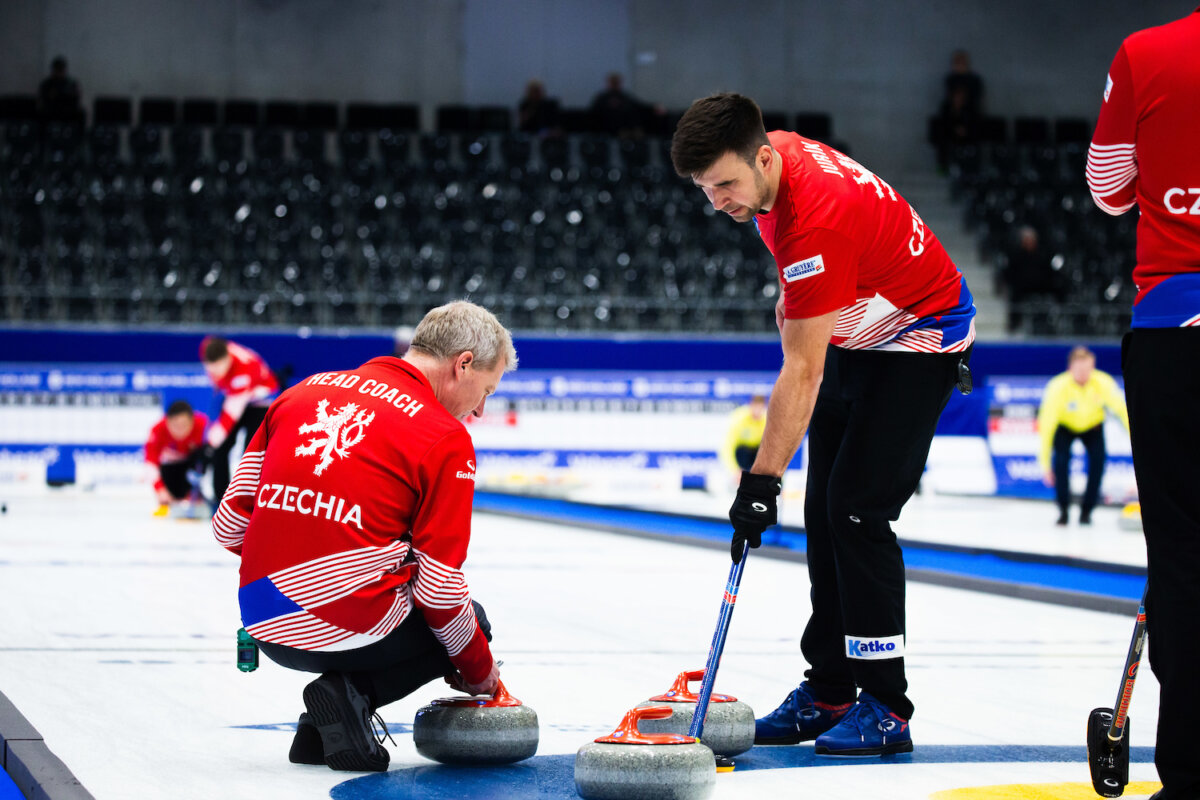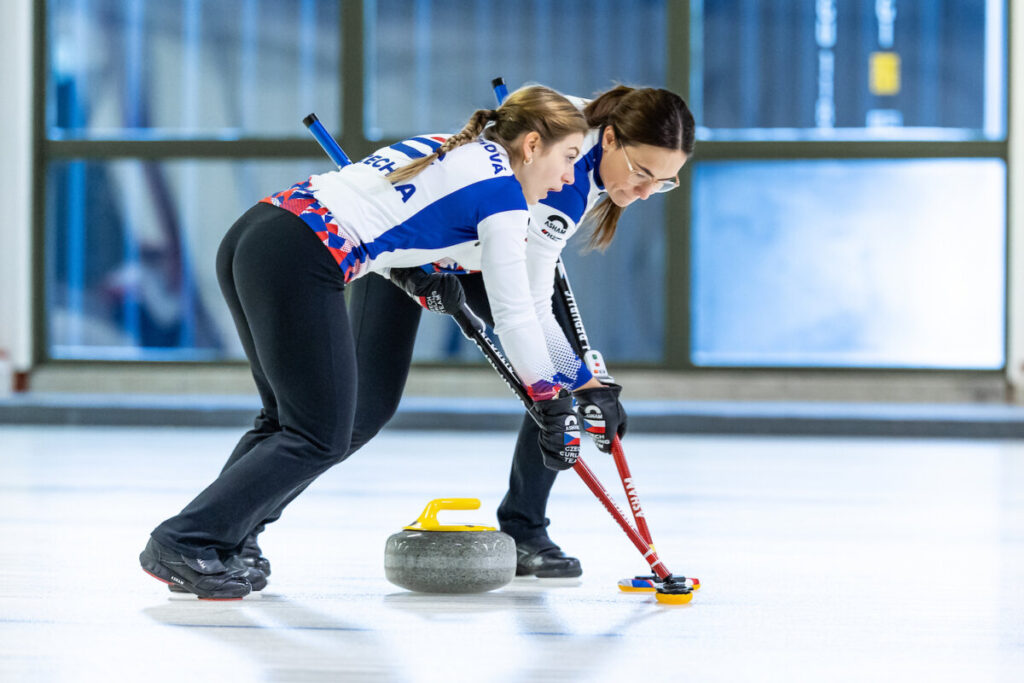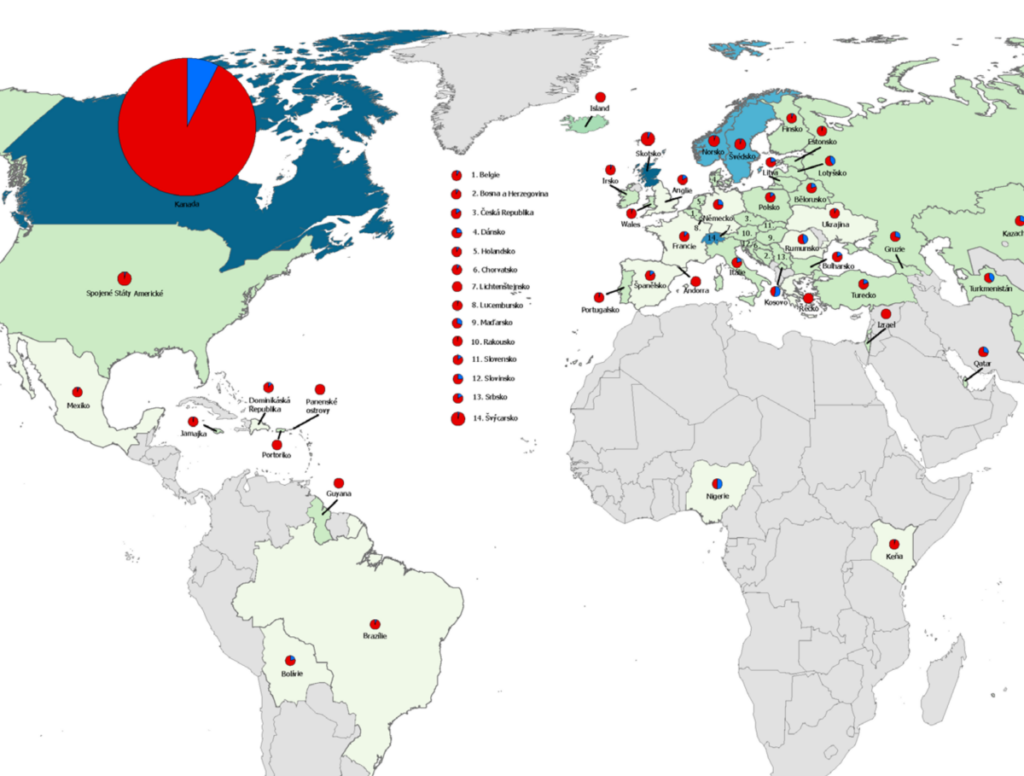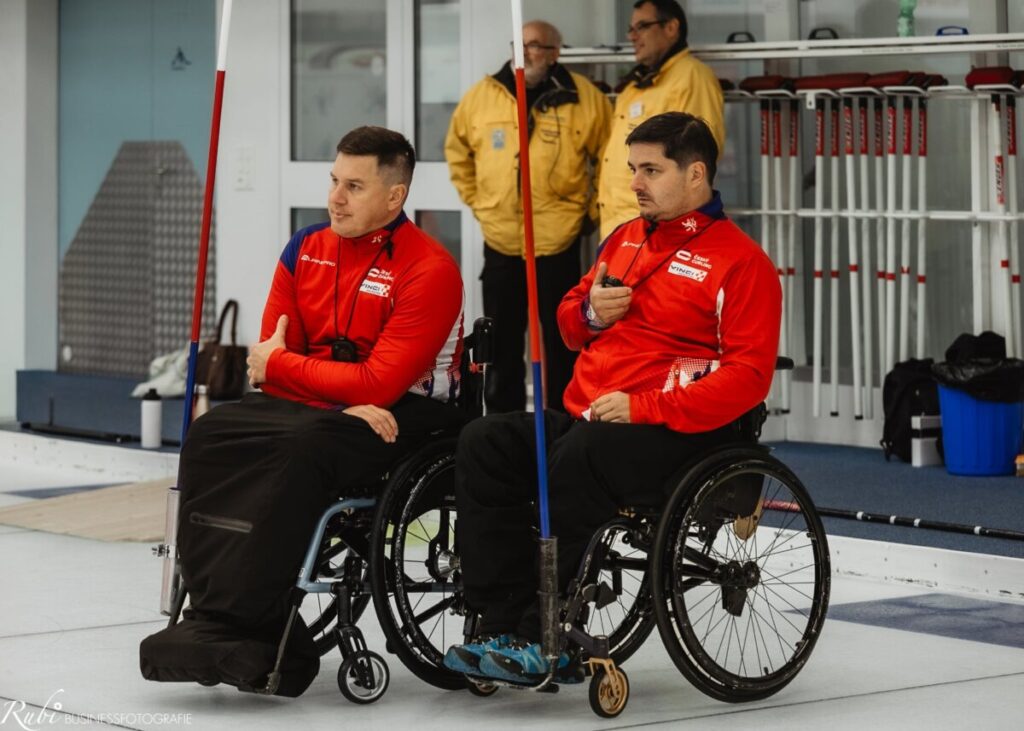For two seasons now, Canadian coach Wade Scoffin has been leading the Czech National Curling Team. He spent the summer back home across the ocean, but is already on his way to Prague—with a stop at the prestigious Euro Super Series tournament in Stirling, Scotland, where the Czech National Team, skipped by Lukáš Klíma, is competing. This is the same team that qualified for the Olympic Games under Scoffin’s leadership.
Last weekend you were in Scotland with the men’s national team, arriving straight from Canada. Lukáš Klíma’s team had already started their season earlier—with a training camp and tournament in Baden alongside their team coach Craig Savill. How was it to jump into a moving train?
No problem at all! Over the summer, we stayed in regular contact with all team members and coach Savill, holding online meetings every two weeks. Craig also met with me separately online 3–4 times a month. He set individual and team goals and prepared personalized training plans for each player. Together, we agreed on the best way to collect and process information to meet those goals. I also watched all the matches from Baden Masters online, and we wrapped it all up with two long meetings with Craig to ensure continuity in every aspect.
Stirling was actually a stop on your journey from Canada to Prague. How did you enjoy your summer?
It was amazing! I focused on family, which I miss the most when I’m far from home. We love spending time in nature, so we went fishing, hiking, camping, played golf, and spent time in places with no mobile signal. I also volunteered at the Yukon River Quest, a marathon canoe race that brings athletes from all over the world—including the Czech Republic—to the Yukon. It was a lot of fun and a great community of active people from around the globe—just like our curling community!
Back to work after the break—what will you focus on most in the upcoming season?
One priority will naturally be the men’s national team. Either I or coach Savill will be with the team at all tournaments. Another priority for me will be the mixed doubles team—after the Czech qualification, of course. We already have a training plan set for October and November to help them prepare for the Olympic Qualification Event in December. I also want to support other National Teams and their coaches in training, and assist the Czech Curling Association in setting up systems for the next Olympic cycle. The potential for growth and improvement in Czech curling is clear, but it needs to be built on the existing foundation.
What will you focus on most when working with the men’s Olympic team and the mixed doubles pair heading to Olympic qualification?
All preparation will be based on evaluation processes and quality assessment. Every player and coach must have an individualized plan that is constantly adjusted based on what happens during the season. Generally, we’ll focus more on controllable variables like nutrition, hydration, and recovery. My non-curling profession involves working with mental and emotional aspects, so I’d highlight self-acceptance, positive inner dialogue, blocking negative thoughts, stress management, habit/routine setting, etc.
What do you think our mixed doubles teams lacked that prevented them from qualifying directly for the Olympics like the men’s team did?
International comparison in this discipline. A typical example is the national teams of Estonia and Australia. These athletes and their associations aren’t much different from us, but unlike us, they’ve made long-term commitments focused on training and preparation in this discipline. It’s definitely something to consider for the next Olympic cycle.
What does that mean in detail? Feel free to compare it with Lukáš Klíma’s team…
What’s needed is a long-term vision and commitment, clear goals, attention to detail, and personal responsibility for daily steps toward those goals. The main reason I see behind the men’s success is the increasing effort over the past few seasons by everyone—players, coaches, and their support team. There are no shortcuts to success—just work smart and do a little more than your competitors.
What do you think should be set up in the preparation process for Czech National Teams to make it work better?
Clearly separate domestic curling from National Team activities. The reason curling in the Czech Republic is where it is today is the work done at the club level over the past 25 years. However, top international competitions are different than they were 10 or 20 years ago. The days when a team could achieve international success in juniors, mixed doubles, or adult disciplines without a well-established program are gone. More emphasis should be placed on the long-term development of individual players. It doesn’t cost more money, but it requires thoughtful planning and the courage to modernize the old system.
What are you most looking forward to in the new season?
I’m humbled and aware of the honor it is to have the opportunity to lead one, maybe two, hopefully three teams to the Olympics. So the answer is clear—the Olympics.
Which curling destination you’ll travel to this season is your favorite and why?
Besides Cortina, there’s one more—Calgary (host of the Women’s World Championship, where the Czech team must first qualify through the European Championship). Mainly for personal reasons, because my youngest child studies and trains there. The city is close to the Rocky Mountains, and I have many good friends in the curling community there.



